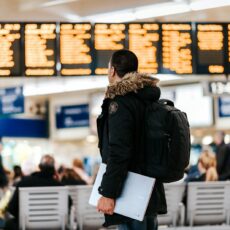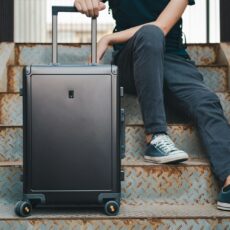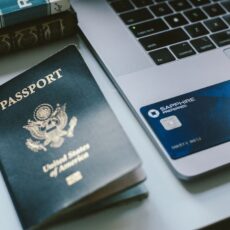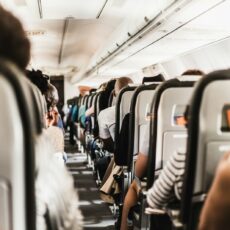
Top Tips for First-Time Travelers
Embarking on your first travel experience can be exhilarating yet intimidating. To ensure a smooth journey, meticulous planning and preparation are paramount. Here are some key tips designed to optimize your travel experience.
Firstly, planning is essential. Start by determining your travel dates and the duration of your stay. This allows you to secure accommodations and transportation early, which can often lead to better rates. Additionally, be sure to create a rough itinerary that outlines the attractions you wish to visit and the activities you hope to participate in. A well-structured plan will help minimize stress and make the most of your time at your destination.
Setting a budget is another crucial aspect of travel preparation. Outline your overall expenses, including flights, lodging, meals, and activities. Having a clear financial plan will help you allocate resources effectively and prevent overspending. Remember to include a contingency fund for unexpected expenses or emergencies while traveling.
Researching your destination before departure can significantly enhance your trip. Familiarize yourself with local customs, culture, language, and potential safety concerns. Knowing what to expect will enhance your interactions with locals and provide a richer travel experience. Tools such as travel blogs and forums can be invaluable for gathering firsthand insights from other travelers.
Packing essentials cannot be overlooked. Make a checklist of necessary items such as clothing, toiletries, travel documents, and any gadgets you may need. Consider the climate of your destination when packing to ensure you are prepared for various conditions. Don’t forget convenient items like a portable charger or a reusable water bottle, which can enhance your comfort during the journey.
By following these foundational tips, first-time travelers can embark on their adventures with confidence and excitement. Preparation is key to transforming your first travel experience into an enjoyable and unforgettable one.
Understanding Travel Logistics
Travel logistics encompass a wide range of components that play a crucial role in ensuring a seamless journey. From booking flights to selecting accommodations and planning itineraries, effectively managing these logistics can greatly influence the quality of a traveler’s experience. Therefore, understanding the intricacies involved is essential for first-time travelers.
Booking flights is often the first step in travel logistics. It is advisable to compare various airlines and look for deals well in advance. Websites and applications that aggregate flight options can streamline the process, making it easier to find the best rates and schedules. Additionally, being flexible with travel dates can sometimes lead to significant savings. Once a flight is booked, it is also necessary to consider the transportation options available at the destination. Researching airport transfers or local public transport ensures a smooth transition upon arrival.
Choosing the right accommodation is another vital aspect of travel logistics. First-time travelers should assess their needs—whether they prioritize comfort, budget, or location—and explore different lodging options. Online reviews, rankings, and travel forums can provide invaluable insights into the suitability of various accommodations. It is essential to check cancellation policies and additional fees to avoid unpleasant surprises later on.
Furthermore, planning itineraries helps maximize time spent at the destination. Travelers should identify key attractions and allocate sufficient time for each, balancing sightseeing with relaxation. Consideration of travel distances between sites can enhance efficiency. Utilizing travel applications can assist in organizing daily activities and provide direction to ensure that no important experiences are overlooked.
By navigating these logistics diligently, first-time travelers can build a solid foundation for their journeys, ultimately enabling them to embrace new adventures with confidence.
Essential Packing Tips for New Travelers
Packing efficiently is a crucial skill for first-time travelers, as it can significantly enhance the overall travel experience. To begin with, a well-organized packing approach minimizes stress and allows for more spontaneity during the trip. A good starting point is to choose the right bag; a versatile, lightweight backpack or a suitcase with ample compartments can meet most needs. Consider selecting a bag that meets airline requirements for carry-on luggage, which can save time at the airport.
When it comes to clothing, think minimalist. Versatile clothing items that can be mixed and matched are key to efficient packing. For instance, opt for neutral colors that can be dressed up or down and easily combined. Fabrics that are wrinkle-resistant and quick-drying are ideal for travel, as they facilitate easy laundering when necessary. Including layers, such as a light sweater or jacket, is also advisable to accommodate changing weather conditions throughout the journey. A travel packing list can be particularly beneficial, ensuring that essential items like underwear, sleepwear, and comfortable walking shoes are not overlooked.
In addition to clothing, essential travel gear should not be neglected. Items such as a portable charger, reusable water bottle, and travel-sized toiletries can significantly enhance convenience and comfort. A good travel guidebook or offline map app can also provide invaluable assistance, especially in areas with limited internet access. Lastly, packing a small first aid kit can address unexpected health concerns that may arise during the trip. Overall, systematic and thoughtful packing can lead to a more enjoyable travel experience, ensuring first-time travelers feel prepared and at ease as they embark on their adventures.
Cultural Awareness and Etiquette
When embarking on a journey to a new destination, cultural awareness and etiquette play an essential role in ensuring a respectful and enriching travel experience. Understanding local customs, traditions, and social norms is not only considerate but also enhances interactions with locals. Each culture has its unique arrangements, and recognizing these differences can significantly bridge gaps between travelers and residents.
One of the first steps in demonstrating cultural awareness is to research the customs of the destination. Basic knowledge about greetings, dress codes, and gestures can help travelers avoid unintentional offenses. For example, while a firm handshake is common in some Western countries, other cultures may prefer a more gentle approach or even a bow. Furthermore, awareness of dining etiquette, such as the appropriate use of utensils or sharing meals in communal settings, can prevent misunderstandings and show respect for local traditions.
Common cultural norms often include understanding the importance of hospitality, punctuality, and personal space, which vary from one culture to another. In some regions, lingering over a meal is a sign of appreciation, whereas in others, it may be seen as rude to overstay one’s welcome. Engaging respectfully with locals can be incredibly rewarding; learning a few words in the local language, such as “please” and “thank you,” can make a tremendous difference. Additionally, asking for permission before taking photos of people or sacred sites demonstrates sensitivity to cultural values.
By embracing cultural awareness during travels, individuals can foster positive interactions, transform their travel experiences, and create lasting memories. Taking the time to engage with local customs not only enriches one’s understanding but also promotes a spirit of mutual respect and appreciation amidst diverse lifestyles worldwide.
Safety Tips for First-Time Travelers
Traveling for the first time can evoke excitement and apprehension, particularly regarding safety concerns. A pivotal aspect of ensuring a secure travel experience is thorough research about your chosen destination. Before your trip, take the time to familiarize yourself with any travel advisories issued by your government or credible international organizations. Understanding the safety levels of different areas within your destination can enhance your confidence as you navigate unfamiliar environments.
Equally important is securing comprehensive travel insurance. First-time travelers often overlook this vital aspect, yet having adequate coverage can safeguard you against unpredictable events such as trip cancellations, medical emergencies, or lost belongings. When selecting a travel insurance policy, examine the options carefully to ensure they cover specific risks associated with your destination, such as theft or natural disasters. This preparation not only provides financial protection but also peace of mind throughout your journey.
While on the road, maintaining a heightened sense of awareness can significantly contribute to your safety. Consider some fundamental practices that can help mitigate risks; for instance, always stay alert in crowded places and avoid displaying valuable items in public. Additionally, familiarize yourself with local customs and laws to avoid inadvertently offending locals or breaking rules. Communicating your itineraries with a trusted friend or family member back home ensures someone is aware of your whereabouts, adding another layer of security.
As a first-time traveler, employing these strategies is paramount in navigating potential threats. By researching your destination, purchasing appropriate travel insurance, and adopting mindful practices while exploring, you set the stage for a safe and enjoyable adventure. Embracing these precautions allows you to focus on the enriching experiences travel offers, transforming uncertainty into confidence.
Budgeting and Saving for Your Trip
When embarking on a journey as a first-time traveler, financial preparedness is paramount. Establishing a solid budget is the first step towards a successful trip without the stress of overspending. Begin by assessing your total travel expenses, which should encompass flights, accommodation, food, activities, and miscellaneous costs. A well-structured budget enables you to allocate resources effectively, ensuring you have enough funds for each aspect of your itinerary.
One effective method for saving money on flights is to book in advance and utilize flexible date searches to identify the cheapest options. Airlines often release deals that can significantly reduce airfare if booked several months ahead of time. Additionally, consider using fare comparison websites and applications, which allow you to track flight prices and receive alerts when they drop.
Accommodation is another area where budget-conscious travelers can save. Opting for hostels, vacation rentals, or budget hotels can lead to substantial savings. Tools like Airbnb and Booking.com provide a range of affordable options to suit varying requirements. This approach not only reduces costs but may also enhance your travel experience by immersing you in a local environment.
Food expenses can quickly accumulate, especially in tourist-heavy areas. To minimize costs, explore local markets or street food options, which often offer delicious meals at a fraction of the price of tourist-oriented restaurants. Setting a daily food budget can also help in managing expenses. Moreover, investing in meal-planning apps can aid in keeping your food expenses within the designated limits.
Lastly, activities and excursions should be approached with caution. Research free or low-cost options available at your destination. Many cities offer free walking tours, museums with no entry fees on specific days, or outdoor attractions like parks. Utilizing budgeting apps can streamline this process for you, allowing for a clear overview of your expenses during your trip. By implementing these practical strategies, first-time travelers can enjoy their journeys while remaining financially responsible.
Navigating Through Transportation Options
When traveling in foreign countries, understanding the available transportation options is crucial for a smooth experience. Various methods exist, ranging from public transport systems to taxis and ride-sharing services, each with its own set of advantages and challenges. Familiarizing oneself with these options can help first-time travelers navigate unfamiliar environments confidently.
Public transport is often the most economical way to get around. Many cities boast an extensive network of buses, subways, and trams that cover major tourist attractions and neighborhoods. To utilize public transport effectively, research local fare systems in advance; this might include purchasing travel cards or tokens that enable unlimited travel within specific zones. Additionally, mobile applications can provide real-time information on schedules and routes, making it easier to plan journeys. Travelers should be mindful of peak hours, as public transport can become crowded during these times.
Taxis offer a convenient alternative to public transport, especially for those traveling with luggage or in groups. It is essential to familiarize oneself with local taxi regulations, including fare meters and fixed rates for certain routes. In some cities, it’s advisable to use only licensed taxis to ensure safety and fare fairness. Checking reviews or asking for recommendations can also aid in finding reputable drivers.
Ride-sharing services have gained popularity in recent years and are often a reliable option for intercity travel. They provide the convenience of booking through a smartphone app and typically offer upfront pricing. However, it’s wise to confirm the driver’s identity and vehicle details before getting in to avoid any potential scams. Utilizing these transportation options can greatly enhance the travel experience while aiding exploration and adventure in new destinations.
Connecting with Other Travelers
One of the most enriching aspects of traveling is the opportunity to connect with fellow travelers from diverse backgrounds. Networking while on the road not only helps alleviate feelings of loneliness but also enhances the overall experience by sharing stories, tips, and recommendations. There are several practical ways to meet other travelers and foster meaningful connections.
Joining local tours is a popular method to meet like-minded individuals. Many tours are designed to bring travelers together to explore landmarks, parks, and cultural attractions. Opting for group activities, such as food tours or adventure sports, creates a natural environment for social interaction. Shared experiences such as these often lead to lasting friendships.
In addition to organized activities, utilizing social media platforms can effectively facilitate connections with other travelers. Joining travel-focused groups on platforms like Facebook or Reddit can provide invaluable insights and opportunities to meet. Engaging in discussions, attending meetups, or simply posting about your current location can attract other travelers looking to connect. These online networks often yield real-life connections through shared interests and itineraries.
Mobile travel apps also serve as effective tools for networking. Apps like Meetup or Couchsurfing not only help in finding accommodations but also offer opportunities to meet locals and other travelers, participate in events, or join group outings. The key is to remain open and approachable, as most travelers are eager to share their experiences and connect with others.
In summary, building connections while traveling is invaluable for first-time travelers. Whether through local tours, social media, or travel apps, the possibilities for networking are abundant. Establishing these connections can enhance your journey and create lasting memories, transforming your travel experience into a more fulfilling adventure.
Capturing Your Journey: Tips for Travel Photography
Travel photography serves as a medium to capture memories and experiences, allowing you to share your adventures with others. As a first-time traveler, it is essential to approach photography thoughtfully, ensuring you document your journey without infringing on the privacy of those around you. To begin, consider investing in essential gear that is portable yet effective. A good quality smartphone is often sufficient for capturing candid moments; however, a compact camera or a DSLR can offer higher resolution and more creative control. Remember to also carry extra batteries and memory cards, as these will ensure that you don’t miss out on any crucial moments.
Understanding the basics of composition can vastly improve the quality of your travel photos. Familiarize yourself with the rule of thirds, which suggests dividing your image into three equal parts both horizontally and vertically, and placing your subject at the intersections. This technique often leads to more visually appealing photographs. Additionally, make use of natural light to enhance your images. Early mornings or late afternoons provide soft, warm lighting that can accentuate landscapes or portraits. Don’t shy away from experimenting with angles and perspectives; sometimes the most striking photographs emerge from unconventional viewpoints.
While capturing images, it is paramount to be respectful of people and cultures around you. Always ask for permission before photographing individuals, especially in private or sensitive environments. This approach not only shows courtesy but often leads to richer interactions and even candid moments you might otherwise miss. Engage with your surroundings and immerse yourself in the experience; this mindset will enable you to take more authentic and meaningful photographs. In summation, by embracing both technical skills and respectful practices, you can effectively document your travel experiences in a way that enhances your memories while honoring the places and people you encounter.














